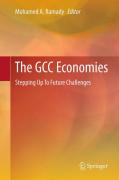
The ‘Arab Spring’ of 2011 has affected the countries of the region to varyingdegrees, including the Gulf Cooperation Council (GCC) members, comprising Saudi Arabia, Kuwait, Qatar, the United Arab Emirates, Oman and Bahrain. The GCChas become a significant regional bloc playing a vital economic and politicalrole far beyond its shores, given its geopolitical strategic location, a preponderance of global energy reserves and a major international player through the use of accumulated financial reserves. A new Gulf is rising, one that is more self assertive, looking to expand its membership to other Arab countries such as Jordan and Morocco, while at the same time strengthening the bloc’s relationship with current and emerging trading and strategic partners in Europe, USA and Asia. Regional and international realities, especially the uncertainties unleashed by the ‘Arab Spring’, are forcing Gulf leadership to initiate new policies involving closer cooperation amongst GCC countries to address emerging challenges. This volume brings together thirty renowned academics and specialists to examine a range of multifaceted social, political and economic issuesfacing the GCC in key areas such as: Diversification from a high dependency on a narrow hydrocarbon base. Social transformation, youth employment and effective gender participation. Outward and inward foreign direct investment flows. Prospects for education reforms and e-learning. Sustainable security in oil,renewable energy (including nuclear) and food. Corporate governance, transparency and enhancing the private sector's operating environment. The role and governance of Gulf Sovereign Wealth Funds in investing their surpluses. The volume also offers insights for challenges facing the GCC in monetary union, expanding the regional debt market and Sukuk issuance, GCC intellectual property rights application, detailed assessments of individual GCC country risk analysis, as well as the sustainability of long term government fiscal stimulus programs at the expense of private sector involvement. Contains contributions from experts from GCC countries on the future of energy and economic policy in the region. Provides analysis of an extremely topical issue in light of recent political movements sweeping the Middle East. Develops inter-linked themes and research tracks that complement each other to provide a holistic approach to the challenges facing the GCC Uses country examples that can be a model for other GCC countries. INDICE: Overview Mohamed A. Ramady. Part 1Regional Structural Reforms and Engines of Change. 1.Working for a Sustainable GCC Future: Reflections on Policies and Practices. Nabil Sultan. -2 Deepening the GCC Debt Market: The Saudi Arabia experience Abraham Abraham, and Fazal Seyyed. 3GCC economic integration: statistical harmonization for an effective Monetary Union Ikhlaas Gurrib. 4E-Learning in the Arab Gulf: Responding to the Changing World of Education Nabil Sultan, Sylvia van de Bunt-Kokhuis, Christopher Davidson, Alain Sentini, and David Weir.
- ISBN: 978-1-4614-1610-4
- Editorial: Springer US
- Encuadernacion: Cartoné
- Páginas: 354
- Fecha Publicación: 30/04/2012
- Nº Volúmenes: 1
- Idioma: Inglés
